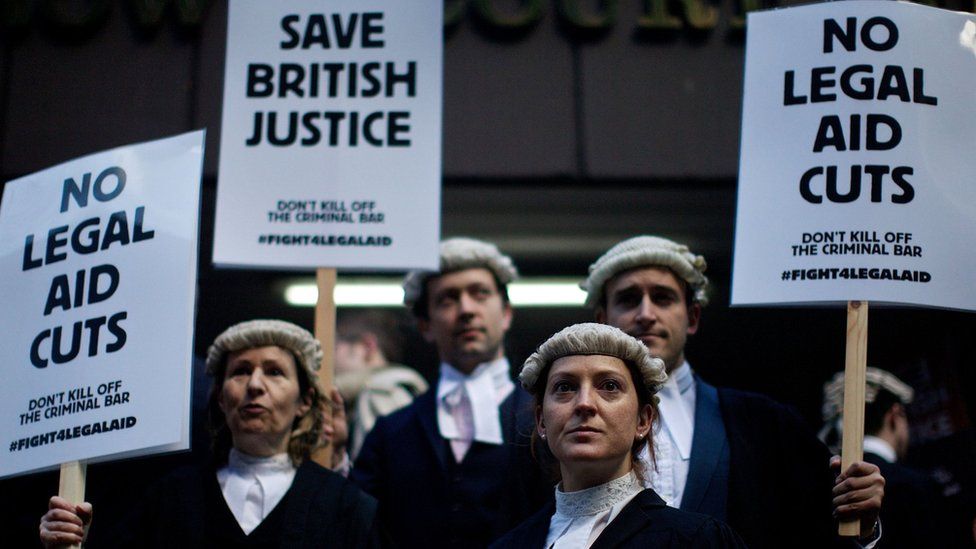LONDON (Parliament Politics Magazine) – About 2,500 barristers in England and Wales, who are critical to the criminal justice system, have started an industrial action over worries about legal aid funding.
They will not pitch in at the last minute to cover court appearances or prep work for coworkers whose cases are running late.
It arises from an unresolved financing dispute with the government.
According to the government, the step would exacerbate existing backlogs.
Ministers, according to the Criminal Bar Association (CBA), are dragging their feet on the implementation of a 15% increase in legal aid rates, as an independent review recommended.
The CBA said that 15% was the bare minimum required to keep the system from imploding.
The figures released the previous week show that 10% of criminal barristers have resigned in the last year, and the government’s efforts to alleviate a statewide backlog are progressing slowly.
The legal equivalent of stepping off the subs bench in the 87th minute after another player has hobbled off is the informal arrangement at the heart of this action.
If a lawyer is unable to make their commitment in one court due to a delayed case in another, a colleague volunteers for reading the case file – which is often done overnight – and acts as their substitute.
Once a judge is satisfied that both the prosecution and the defence are adequately represented in court, the case can proceed to a conclusion.
In case of unavailability of a barrister, the judge can only postpone the hearing until a later date.
Those adjournments then compete for slots against both new cases and the existing backlog in a few weeks.
What’s the worst-case scenario? As courts struggle to find a means to hear them, entire prosecutions will be delayed for months.
The government is outraged, but many criminal lawyers, particularly the young, claim they are barely scraping by and that there are now far too few of them. What evidence do you have for that? Between October and December of last year, 280 trials were postponed due to a lack of prosecutors and defence attorneys.
Criminal legal aid explained
From the police interview through the trial, the legal aid system in Wales and England guarantees that suspects who cannot pay lawyers’ fees are represented and advised properly.
The system is essential for expediting justice by reducing court time and ensuring that defendants receive a fair trial.
Over the last 25 years, however, the sums paid for this work have been frozen and then slashed.
Sir Christopher Bellamy QC, former judge, supported many of the concerns of lawyers in an independent study, urging ministers to find at least £135 million to stem a lawyer exodus from criminal justice and assist address the present backlog that is 59,000 cases in the Crown Court system.
£135 million was, in his opinion, the bare minimum as a first step in nursing the criminal legal aid system back to health after years of neglect, he said.
That number, he believes, was not a ‘opening bid,’ but rather what was required, as quickly as possible, to enable the entire criminal justice system to work properly, respond to forecasted increased demand, and reduce the backlog. There was no scope for further delays, he added.
Image via BBC






